International
Peru’s Castillo shakes up police leadership after raid of govt headquarters
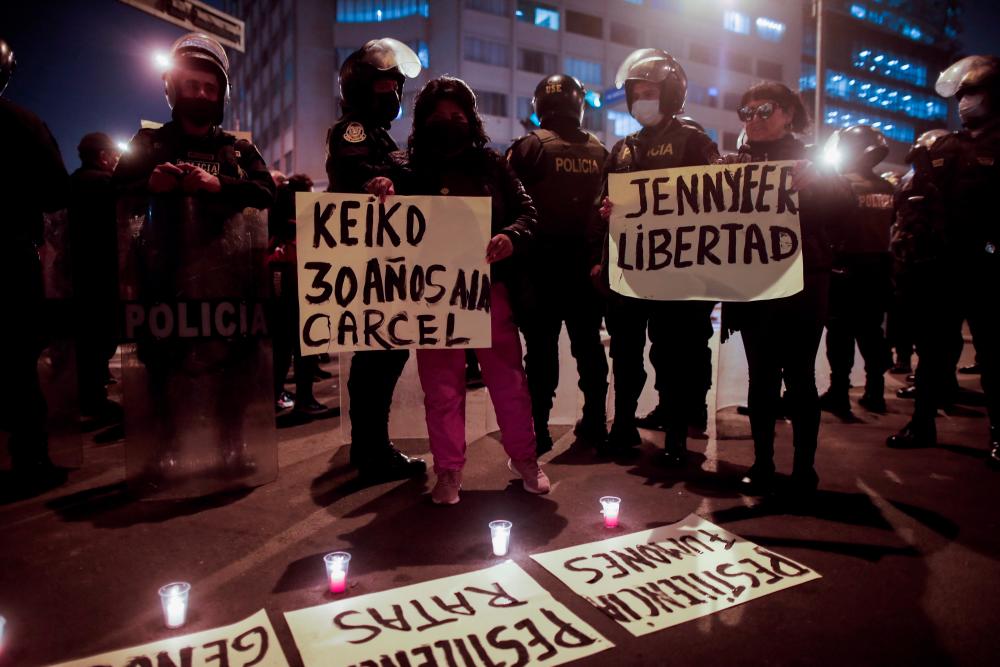
AFP
Leftist Peruvian President Pedro Castillo replaced the leadership of the country’s national police Saturday, two weeks after anticorruption officials searched government headquarters in search of the leader’s wanted sister-in-law.
During the raid earlier this month, which Castillo has called “illegal,” investigators looked for Yenifer Paredes, who is accused of taking part in a corruption ring which prosecutors allege is run by the president and his wife, Lilia Paredes.
Among others, Castillo is now seeking to dismiss the head of that operation, Harvey Colchado, whom he says violated presidential immunity.
Deputy Internal Order Minister Abel Gamarra Saturday the turnover is a “natural change” as part of regular personnel switch-ups at the Interior Ministry.
“Norms (on appointment requirements) have not been violated,” Gamarra told RPP radio, adding that the “police command is not being crushed.”
Nevertheless, right-wing opposition lawmaker Jorge Montoya, who sits on the Internal Order parliamentary committee, on Twitter called the changes an “indiscriminate abuse of authority” by Castillo.
According to human rights lawyer Carlos Rivera Paz, Castillo “seems to want a police force that accommodates his interests,” which could include obstructing any investigations of which he is a target.
The ordeal is the second scandal Castillo has faced in regards to personnel changes at the top of Peru’s security forces.
In January, he was forced to name a new cabinet head after controversy over promotions in the Peruvian National Police (PNP) and the armed forces.
Those promotions are under investigation by prosecutors, which alleges that Castillo and former secretary of the presidency Bruno Pacheco engaged in influence peddling.
Castillo is currently the subject of an unprecedented six investigations for offenses including organized crime, obstruction of justice and plagiarism, though he carries presidential immunity through the end of his term in July 2026.
And Castillo’s family also faces legal trouble — his daughter risks three years of preliminary detention for her role in the corruption plot, while his wife could be banned from leaving the country.
Castillo, who has faced two impeachment attempts in his 13 months in office and currently has a disapproval rate around 70 percent; he has denied involvement in any crimes and claims he is a victim of a campaign trying to remove him from power.
International
Colombia slams Ecuador’s 30% tariff as ‘economic aggression’
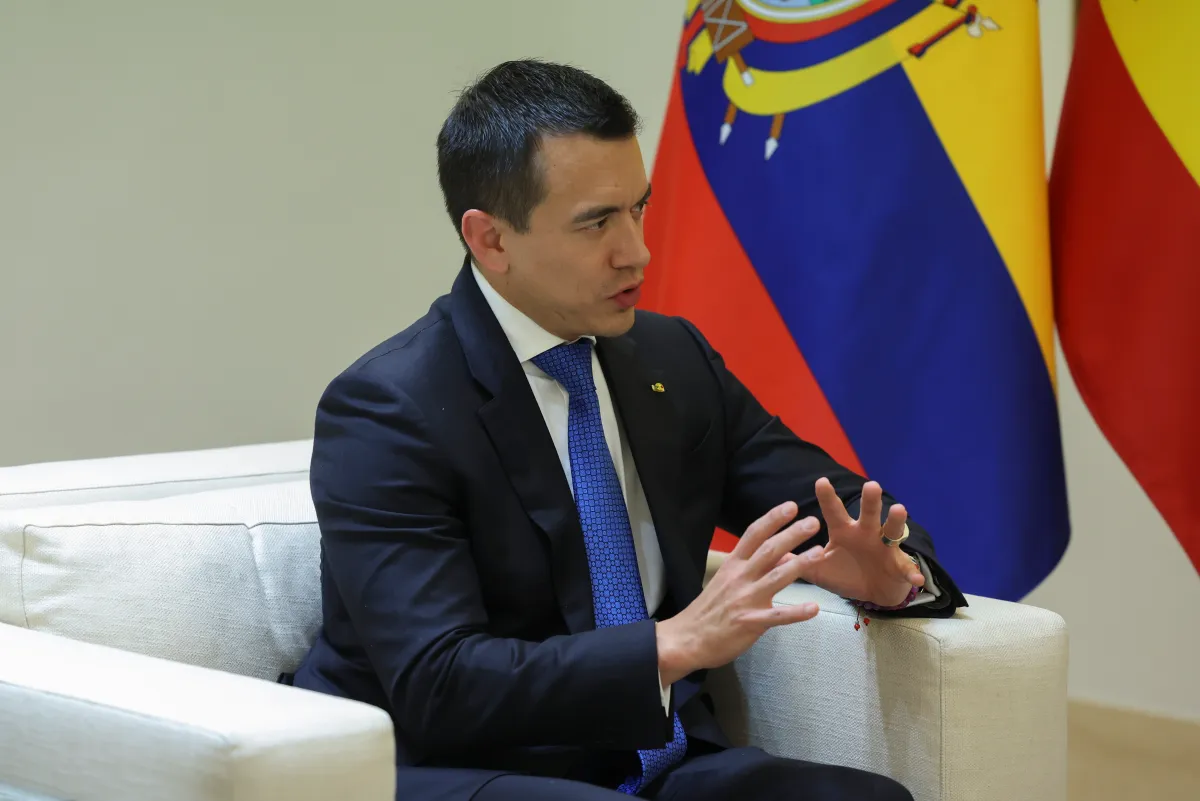
Colombia’s Minister of Mines and Energy, Edwin Palma, on Wednesday described as an “economic aggression” the 30% “security fee” imposed by Ecuadorian President Daniel Noboa on imports from Colombia.
“We reject the tariff measure imposed by Ecuador, an economic aggression that breaks the principle of regional integration,” Palma said in a post on X.
President Noboa explained that the decision was taken due to what he described as a “lack of reciprocity and firm actions” by Colombia in the fight against drug trafficking. He added that despite Ecuador having made “real efforts of cooperation,” including maintaining a trade deficit exceeding $1 billion annually, the country’s armed forces continue to face drug-linked criminal groups along the border without any cooperation.
For that reason, Noboa stated that the measure will remain in place “until there is a real commitment” from Colombia to jointly confront drug trafficking and illegal mining along the 586-kilometer shared border, with the same level of determination Ecuador is currently applying.
According to official data, Ecuador seized 214.5 metric tons of drugs in 2025, down from the record 294.6 tons confiscated in 2024.
Colombian President Gustavo Petro said on January 7 that during his administration, which began on August 7, 2022 and ends this year, drug seizures have increased significantly, adding that total confiscations are expected to exceed 3,500 tons by the time he leaves office.
International
José Jerí claims destabilization attempt after videos of secretive meetings surface
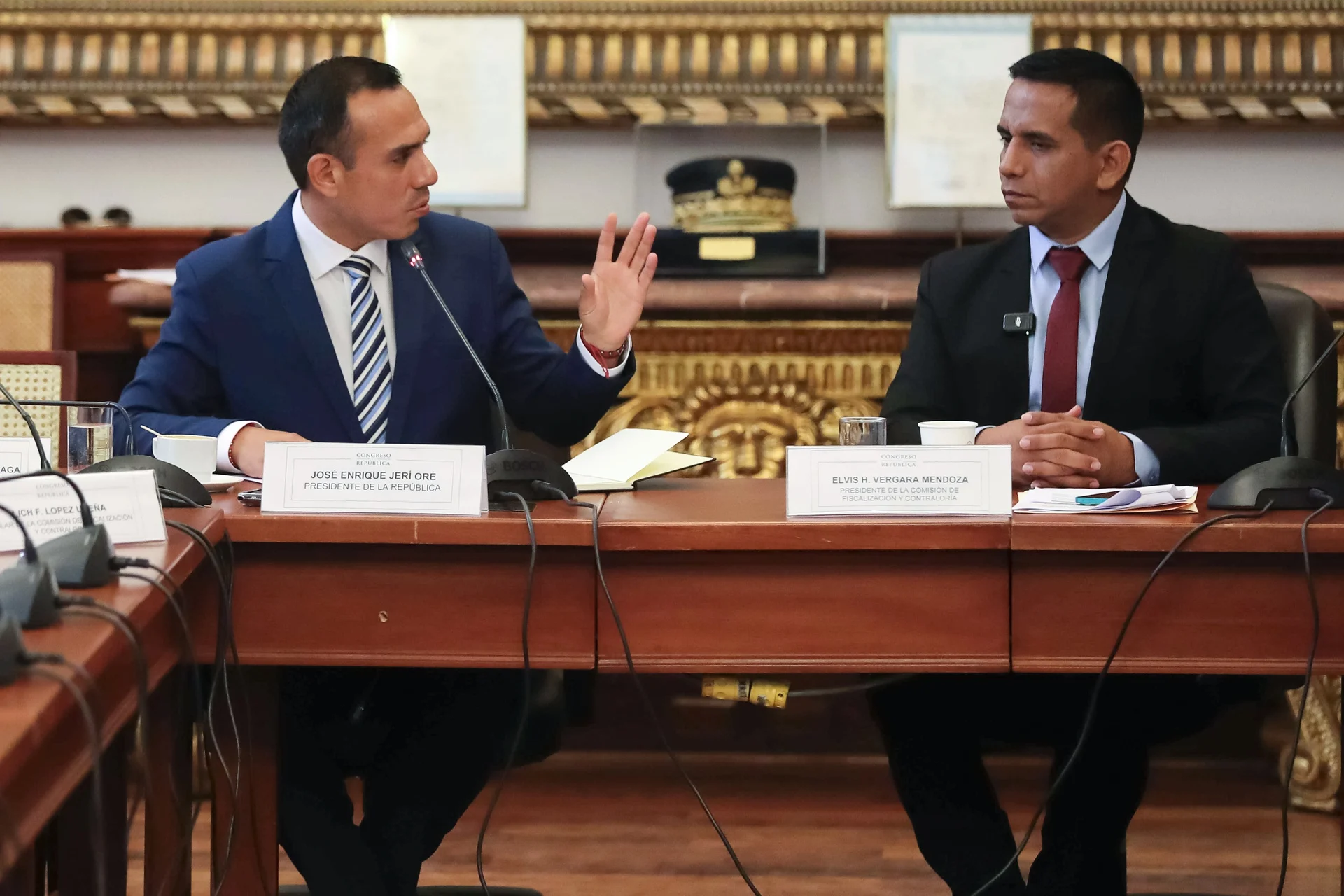
Peru’s interim president, right-wing leader José Jerí, on Wednesday denounced an alleged plot against him and warned of a deliberate attempt to destabilize the country, following the release of a series of videos showing semi-clandestine meetings with a Chinese businessman, as well as visits to the Government Palace by another businessman of the same nationality who is under house arrest.
“I also want to know who is behind this entire plot. I am an objective and impartial president who does not give in to pressure, but someone has found a way to do so. I want to know who is behind it and what their real objective is,” Jerí said while appearing before Congress’ Oversight and Comptroller Commission.
The interim president, who recently marked 100 days in office after replacing former president Dina Boluarte (2022–2025) in his role as head of Congress, insisted that he has never lied to the country. Without directly accusing any individual or group, he argued that routine activities—such as visiting a restaurant or a shop—are being portrayed with a “malicious” intent.
So far, reports indicate that on December 26, close to midnight, Jerí visited a chifa restaurant—a Peruvian-Chinese eatery—owned by Chinese businessman and state contractor Zhihua “Johnny” Yang, accompanied by Interior Minister Vicente Tiburcio, and wearing a hood. On January 6, he also visited a shop belonging to the same businessman, which had been shut down by municipal authorities just hours earlier.
The revelations have fueled political controversy and renewed scrutiny of the interim administration’s actions amid Peru’s ongoing political instability.
International
Mexican influencer “La Nicholette” kidnapped in exclusive area of Culiacán
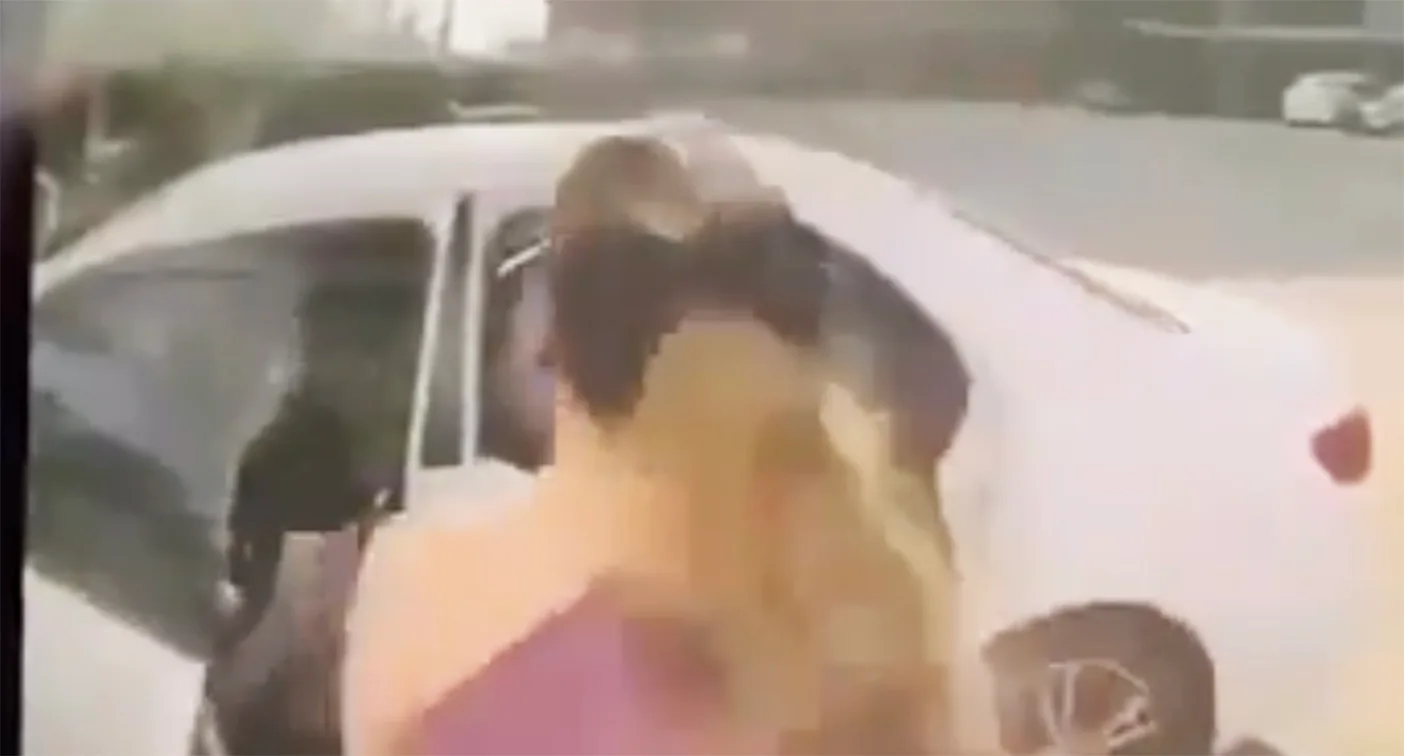
The content creator known as “La Nicholette,” also referred to as “La Muchacha del Salado,” was kidnapped Tuesday afternoon in Isla Musalá, one of the most exclusive residential areas of Culiacán, capital of the northern Mexican state of Sinaloa, according to local media reports on Wednesday.
The abduction was captured by the security camera of the young woman’s vehicle, a lilac-colored Tesla Cybertruck, which was later found abandoned at the scene.
Video footage circulating on social media shows a masked man carrying a long firearm preventing the influencer from entering her vehicle, while another individual forces her into a white sedan, reportedly an older-model Toyota Corolla.
According to media reports, the incident occurred at approximately 5:00 p.m. local time (2300 GMT) at the intersection of Tachichilte Avenue and San Esteban Street, within the Musalá residential area.
Authorities have not yet released official details regarding the victim’s whereabouts or the motives behind the kidnapping.
-

 International3 days ago
International3 days agoDeath toll from southern Spain train crash rises to 40
-

 International5 days ago
International5 days agoU.S. deportation flight returns venezuelans to Caracas after Maduro’s ouster
-

 Central America3 days ago
Central America3 days agoGuatemala raises police death toll to nine after gang violence escalates
-

 Central America4 days ago
Central America4 days agoGuatemala prison uprisings leave 46 guards held by gangs
-
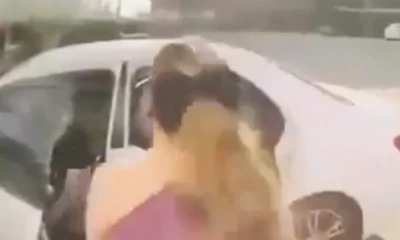
 International12 hours ago
International12 hours agoMexican influencer “La Nicholette” kidnapped in exclusive area of Culiacán
-

 International3 days ago
International3 days agoOver 160 christian worshippers kidnapped in Kaduna Church attacks
-
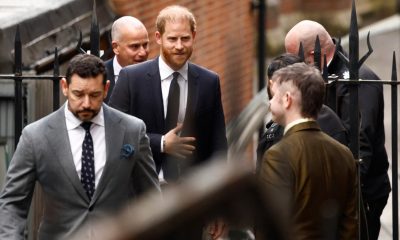
 International2 days ago
International2 days agoDaily Mail publisher insists reports relied on legitimate sources amid privacy trial
-

 International4 days ago
International4 days agoChile declares state of catastrophe as wildfires rage in Ñuble and Biobío
-

 International5 days ago
International5 days agoFormer South Korean President Yoon sentenced to five years in prison
-
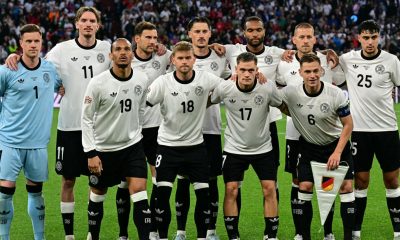
 International2 days ago
International2 days agoGermany says football bodies alone will decide on possible World Cup boycott
-

 International3 days ago
International3 days agoSpain’s Prime Minister pledges transparency after train crash kills at least 39
-

 International12 hours ago
International12 hours agoTrump announces preliminary NATO agreement on Greenland, suspends tariffs on Europe
-

 International12 hours ago
International12 hours agoMajor winter storm to blanket U.S. and Canada with snow, ice and arctic cold
-
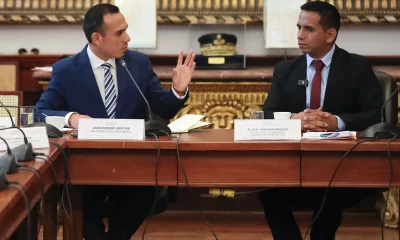
 International11 hours ago
International11 hours agoJosé Jerí claims destabilization attempt after videos of secretive meetings surface
-
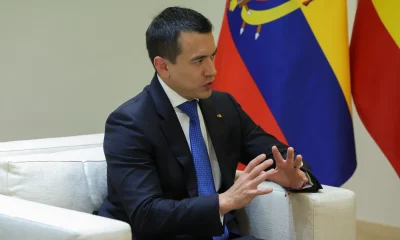
 International11 hours ago
International11 hours agoColombia slams Ecuador’s 30% tariff as ‘economic aggression’


























